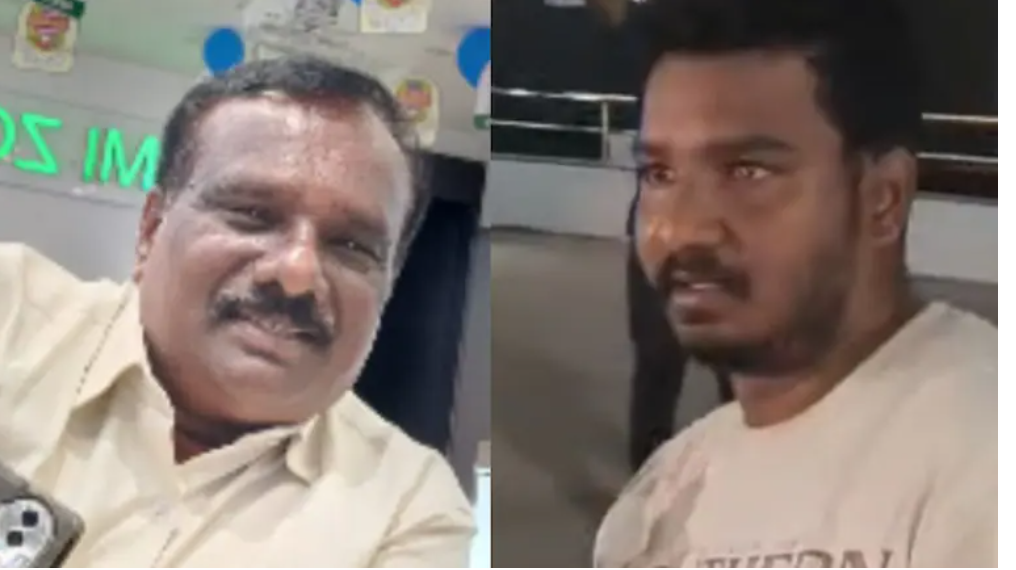[vc_row][vc_column][vc_column_text]~By Jayant Tripathi
In the famous case of Woolmington vs DPP, decided by the House of Lords in UK [reported in 1935 AC 462], it was held that “Throughout the web of the English Criminal Law one golden thread is always to be seen, that it is the duty of the prosecution to prove the prisoner’s guilt…”.
This “golden thread” has been the backbone of criminal jurisprudence in India as well, and has been articulated by the Supreme Court over and over again, in a number of cases. One such case was the attack on Akshardham temple, where, in 2014, the Supreme Court let off 6 accused persons, who had been sentenced to varying punishments ranging from prison terms to the death sentence, giving them benefit of doubt and holding that the prosecution had failed to prove its case beyond “reasonable doubt”.
The three cardinal principles of criminal law are (a) a consistent presumption that the accused is innocent, which therefore leads to the second principle (b) the prosecution has to prove its case beyond “reasonable doubt”, and (c) the onus upon the prosecution, to prove its case beyond ‘reasonable doubt”, never shifts, i.e., the accused is not required to prove his innocence.
What this effectively means is that if there is “doubt”, i.e., the prosecution has not been able to prove its case beyond “reasonable doubt”, then the “benefit of doubt” has to be given to the accused.
The passionate stand taken by a lot of persons, lawyers, and non-lawyers alike, in reaction to the recent decision of the Delhi High Court letting off Mehmood Farooqui, accused of raping a woman, appears to have forgotten the above cardinal principles of criminal jurisprudence.
According to Section 375 of the Indian Penal Code, 1850, the crime of rape has to be committed, inter alia, against the will, or without the consent of the victim.
There has also been a lot of confusion in the media as to what the judgment actually says. A number of media sources have made the mistake of confusing the arguments of the defense as being the findings of the judge, which have led to ill-informed outbursts in the media.
So what does the judgment actually say?
The defense team for Farooqui raised many arguments, nearly all of which were dismissed by the Judge as not being relevant.
The defense also advanced the following arguments to show that the sexual act was consensual-
(i) the prosecutrix not running away from the place of occurrence;
(ii) her remaining present in the house of the appellant for about a good 45 minutes post rape;
(iii) not divulging about the act to either Prosecution Witness 12 or brother of the appellant who came along with PW.12 or to the wife of the appellant;
(iv) no communication with the appellant till 30.03.2015;
(v) first communication to the appellant being in the nature of a minor abjuration;
(vi) the prosecutrix booking a MERU cab and cancelling the same;
(vii) going to the restaurant at Hauz Khas after the incident;
(viii) calling PW.12 after reaching Hauz Khas hotel;
(ix) taking an inordinately long time to register the FIR
Dealing with all these arguments for the defense, the Judge has negated all of them, and has held that these could be attributable to “rape trauma syndrome”.
The defense team also attempted to argue that there was a huge discrepancy in the sequence of events, which would mean that there was no more than one or two minutes for the act complained to have taken place. Dismissing this argument, the Judge has held that the complainant is a sterling witness, and the discrepancies in timings are not significant. As a matter of fact, the Judge goes into a small digression on studies of how memory works, and holds that “…the hunt for accuracy to the seconds and minutes is nothing but chasing illusion.”
The defense tried to argue that there was a past history of physical intimacy between the parties, and therefore there was consent in the past. The Judge dismissed this argument by saying that “…such past conduct will definitely not amount to consent for what happened in the night of 28.03.2015, if at all it had happened, as for every sexual act, everytime, consent is a must.”
The argument that the accused suffered from bi-polar disorder was also not accepted by the Judge, who said that no evidence had been led on that aspect.
Section 375 of the Indian Penal Code defines “Rape”. Explanation 1 to Section 375 defines consent to mean “an unequivocal voluntary agreement when the woman by words, gestures or any form of verbal or non-verbal communication, communicates willingness to participate in the specific sexual act.”
However, as set out in section 90 of the Indian Penal Code, consent ceases to be consent, if it has been given for fear of injury and that the accused knows that the consent is being given out of such fear.
The core issue before the Judge was whether there was consent by the complainant for oral sex to be performed on her by the accused.
The complainant, writing about the incident, two days after the incident has said “I tried calling you, but was unable to get through, I want to talk with you about what happened the other night. I like you a lot. You know that I consider you a good friend and I respect you, but what happened the other night wasn’t right. I know you were in a very difficult space and you are having some issues right now, but Saturday you really went too far. You kept asking me if you could suck me and I knew you were drunk and sad and things were going awful. I knew that this wasn’t going to help things and I told you many times I didn’t want to. But you did become forceful. I went along, because I did not want things to escalate, but it was not what I wanted. I was just afraid that something bad would happen if I didn’t. This is new for me. I completely own my sexually (sic) and I consider you a good friend. I like you. I am attracted to you, but it really made me feel bad when this happened. I haven’t known what to say to you since then, I wasn’t sure if I would say anything. In the end I consented, but it was because of pressure and your own force physically on me. I did not want things to go bad. I have only decided to tell you how I feel for your own well being. I am afraid that if you don’t realize that this is unacceptable, you may try this on another woman when you are drunk and she will not be so understanding. I do love you and wish you well. I want the best for you, whatever that is, but I also need you to know doing what you did the other night is unacceptable. I hope this doesn’t affect our friendship, but am willing to deal with the repercussions if it does.”
In a slight deviation from the complaint as recorded in the FIR and the above email, the complainant during her testimony before the trial court stated that after the act was initiated, she remembered the case of Nirbhaya (where resistance had resulted in a gruesome death), and therefore she went along with what was happening.
Reading the judgment in its entirety, it appears that the initial advances of the accused were rebuffed. When the accused held down the complainant to perform oral sex on her, the complainant (for fear of meeting the same fate as Nirbhaya) gave non-verbal consent, which was taken by the accused to be true consent.
It is in this context that the judgment says that while in most cases reluctance will have to be seen as denial of consent, but in cases where the persons involved are known to each other, and there has been a prior history of intimacy, it is “really difficult to decipher whether little or no resistance and a feeble “no”, was actually a denial of consent.”
Should the accused have stopped at the first instance of a feeble no and little resistance, and not persisted any further? When he persisted, and the complainant stopped resisting (for fear of injury, which unfortunately was not communicated to the accused), was there consent, at least in the mind of the accused? Just as consent can turn to non-consent during the act, is it possible for non-consent to turn to consent? Does persistence form a part of courtship / mating rituals, especially when the parties are in a relationship, and if yes, how are limits and boundaries to be determined? These are issues which will require greater thought and debate, and perhaps even a change in law relating to consent, and the manner in which it is required to be communicated.
The judgment does not state that the incident did not take place. The judgment also does not state that there was no rape as was alleged. The judgment also does not say that the version of the complainant is incorrect. The judgment also does not find Farooqui innocent of the charges against him.
What the judgment does is apply the “golden thread” and finds that the prosecution has not been able to prove its case “beyond reasonable doubt”. The judge has observed that “What is the truth of the matter is known to only two persons namely the appellant and the prosecutrix who have advanced their own theories/versions…”.
The benefit of doubt has been given on account of the fact that the complainant, who initially resisted, later feigned consent for fear of injury. However, the accused was never made aware that the consent was feigned and was being given for fear of injury. As the judgment states, it could not be proved, beyond reasonable doubt, that the accused was aware that his act was against the will of the complainant and was without her consent. (Jayant Tripathi is a lawyer practicing in the Delhi High Court)[/vc_column_text][/vc_column][/vc_row]

























